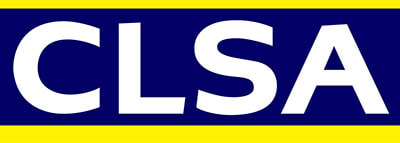|
Senior executives know their words carry weight. They're often scrutinised, and have the power to either positively influence or alienate people. Executive communication, if done well, can inspire and yield positive business results. If done badly, it could ruin careers and organisations. Over the years, we’ve been emphasising the importance of a healthy corporate culture that is inclusive, provides psychological safety and enables every employee to thrive. In fact, we believe such a culture is the linchpin of effective organisations in terms of productivity, profitability and even mental health.
Naturally, if you're a senior executive, especially if you're in the C-suite, you play a vital role in setting the tone. At the basic level, experts will tell you to be clear, concise, compassionate, empathetic and authentic. That’s certainly a good way to start. However, getting there can be challenging. As a start, you must be clear about your objectives and importantly, be able to see the gap between what your people think of you and how you actually want to be viewed for the good of the organisation and your career. Before you engage and influence others, examine your relationship with self. This requires coming from a place of courage;
These make for powerful leadership communication especially because it's so rare. When leaders take responsibility for their actions, they build a culture of accountability and increase trust. We take the time to get executives to a place of courage so that all related actions come more easily. The first step is to identify your “why”. On the surface, many might say that they're only devoting time to executive communication training because their bosses insist on it. But for lasting results, executives should be encouraged to dig deeper to find what’s in it for them as individuals. Some might say they want to be liked so that getting buy-in for high-level policies would be easier in the long term. Others might say that they would personally be enriched by improved professional relationships within the organisation. Whatever the reason, you'll certainly be more motivated by your "why" than by higher-ups' directives. Another important factor in executive communication is knowledge of your audience. Often, organisations focus on ensuring executives know their key messages intimately providing very little guidance on how to effectively communicate these messages to various audiences. How Team A receives a message could be very different from how Team B receives it. Successful executive communication involves careful audience mapping. Message shaping and delivery is predicated on knowing your audience. What matters to them? How will your key message be beneficial to them to the extent that you can get their buy-in to achieve the desired action and goals? Focus on their psychology and human needs. Believing in your audiences’ interest on a human level will make it easier for you to not only exercise behavioural flexibility but also be more authentic. Think about which facet of your personality your audience needs at that point in order to trust you and your message. Once you've identified this, getting into the appropriate state of mind to serve your audience and yourself, becomes easier. To increase team agility, effective leaders must tailor their messages to reach employees at all levels of the organisation. Siloed organisations where executives stay in their leadership bubble, are no longer fashionable and yield inferior results. Aside from high-level messaging, executives also need to develop more intimate professional relationships. These must go beyond conversations over coffee. Often, these chats don’t lead to anything meaningful. To truly develop your executive voice, reach out to at least one team member a week. This person need not be within your direct functional area. Do it intentionally to discuss their goals and challenges, how you could support them, as professionals and strategic business partners. Active listening – the ability to listen and ask questions without judgement - is also an underrated skill that we endeavour to develop in our executive communication coaching sessions. Listening well will enable you to calibrate your messaging. When you listen to what people are saying or not saying, you’ll be able to more easily address their concerns, needs and aspirations, among other things. Once you’ve developed an executive persona that resonates with your team, even crisis communication becomes easier. Knowing that your team trusts you, will enable you to stay calm under pressure. We also advise sticking to facts rather than getting overwhelmed by emotion. This doesn’t mean you steer clear of empathy. In fact, level-headedness will allow you to be more intentionally empathetic without getting carried away by emotions, that could result in you saying potentially damaging things, hurting both you and your organisation. Ultimately, the executive voice dictates perceptions of your company and its values. Most importantly, executive communication should not be seen as an event. It should be regular and follow a rhythm, e.g. daily and weekly huddles, followed by monthly offsite meetings during which goals are reviewed. These can be augmented with weekly e-mails, video communication, one-on-one coaching and mentoring sessions, etc. Ultimately, leaders need to be visionaries who can articulate aspirations for the future and guide decisions on individual and corporate development. A crucial part of being a visionary is being able to communicate in a way that resonates with your stakeholders.
0 Comments
Your comment will be posted after it is approved.
Leave a Reply. |
SYLVIA FERNANDES
Sylvia is a qualified Neuro Linguistic Programming (NLP) Master Trainer. She started her business in Sydney and is now based in Singapore. Archives
December 2024
Categories |

 RSS Feed
RSS Feed









